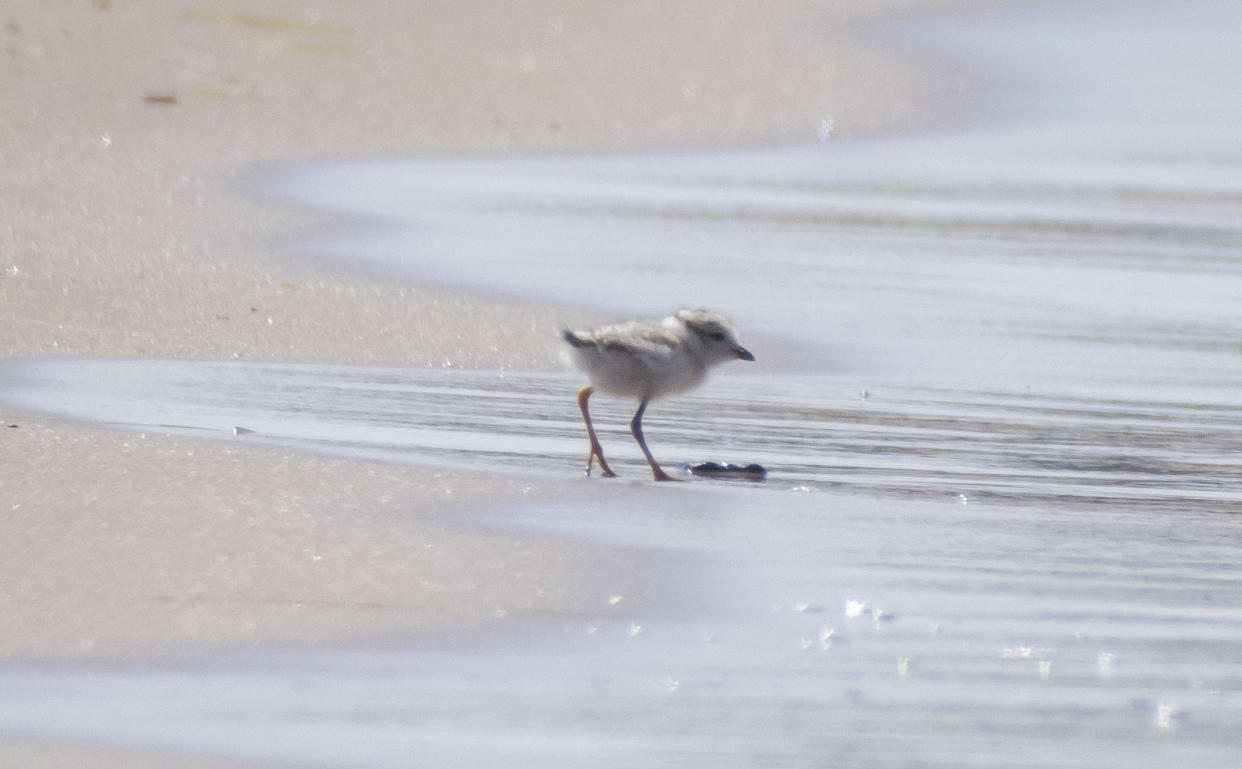Name revealed for Montrose Beach piping plover chick

The surviving piping plover chick on Montrose Beach now has a name.
The chick, born this summer to parents Imani and Searocket, was named Nagamo, which means “he/she sings” in Ojibwe, one of the languages spoken by the Anishinaabe people. The city of Chicago is located on their traditional homeland. Imani was born in 2021 to beloved couple Monty and Rose.
Nagamo’s name, announced Saturday, was selected via a communitywide contest organized by the Chicago Bird Alliance, Chicago Ornithological Society and Illinois Ornithological Society. Participants were encouraged to submit ideas reflecting Chicago’s heritage, culture and diversity. A panel of leaders from local environmental and birding organizations made the final decision to select the name submitted by Mike Doty.
Piping plovers are known for their melodic “pi-low” chirp. Their scientific name, Charadrius melodus, also pays homage to their songlike call.
So far, Nagamo seems to be wearing the name well.
“On the day of the naming selection, Imani and Sea Rocket’s little chick was heard piping,” according to the Chicago Piping Plovers Instagram account, which provides regular updates on the Montrose Beach bird family.
Nagamo and parents are being closely monitored by the Illinois Department of Natural Resources, Chicago Park District and volunteers from Chicago-area birding organizations. Researchers have yet to determine Nagamo’s sex.
Piping plovers in Chicago: How the ‘love story’ between Monty and Rose unfolded at Montrose Beach
Piping plovers are federally protected endangered species native to the Great Lakes and known for pairing up to rear young. The Montrose Beach family is part of an ongoing effort to restore the piping plover population, which reached an all-time low of 13 pairs in the 1980s.
Historically, 500 to 800 piping plover pairs nested in the Great Lakes, according to the Great Lakes Piping Plover Conservation Team.
Today, Imani and Searocket are one of 80 pairs of piping plovers in the region.
Conservationists celebrated earlier this summer when Searocket became one of the first captive-reared piping plovers to lay eggs in Illinois.
Her four chicks hatched on June 30 and July 1, but Nagamo is the lone survivor. The three siblings all died in the span of five days, about two weeks after they were born.
One disappeared and was later found dead with a growth on the side of its neck. The other two were observed being lethargic and died within hours of being taken to the Lincoln Park Zoo for care, despite showing no earlier signs of illness or injury.
Nagamo appears healthy and was banded with a U.S. Department of Agriculture tag on its right leg for continued monitoring.

